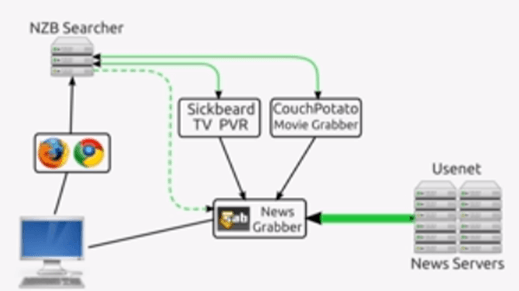Unless you’ve been shacking up in the woods for the last decade like you’re a minor Walking Dead character trying to make it to the next season, chances are you’ve experienced a wide scale integration of every facet of your life with the World Wide Web. The technological revolution and the creation of the web have fundamentally changed the way our world works, with the constant access to information and connectivity the web offers being a valuable asset for every business, institution, and private use.
While society was already slowly sliding towards complete integration with digital spaces, the coronavirus pandemic forced the change that was already taking place to accelerate: with it no longer being safe to go out, do business in public, or visit friends and family in person, consumers and enterprises alike had to find ways to conduct these vital functions online. With variants of COVID-19 making the rounds worldwide and evolving, forcing some countries back into quarantine amidst mass vaccine hesitancy and antivax protests, chances are that our world isn’t reverting to business as usual any time soon.
Of course, these changes were already taking place, albeit at a longer pace: it has been clear that the future is digital for quite some time, and companies and consumers alike have adjusted to the advent of new, convenient technologies. Not everyone likes how things have changed, however: people who have been around since the dawn of the net know that the World Wide Web is a very different place today than it used to be. Once a unique way to share information quickly, with a collaborative spirit and platforms that were used by consumers as creative sandboxes, now the web has become one giant corporate playground: companies have flooded digital spaces with advertising, collect massive amounts of data for their marketing analytics (without our knowledge or consent, at times), and take every available opportunity to intrude on our lives.
Moreover, modern-day creators are not innocent either, with a massive drive to either market themselves and go viral, becoming “influencers” or C-list celebrities in the process, or market corporate products to collect a hefty paycheck.
The net has become a corporate dystopia, infected by a twisted, Black-Mirror-like version of the capitalist spirit, leaving many to wax nostalgic about the early days of the net, wishing to return to simpler times. Fortunately, for people who are dissatisfied with the way the World Wide Web works, there are other networks out there that they can join that haven’t been polluted by the capitalistic impulse. senet, a living relic from the early days of the internet, is a creative sandbox in the spirit of the web in its early days, a collaborative environment where users get together to discuss their passions and share user-created content. And with the right newsreader (or the equivalent of a browser for Usenet), you can access it and join a thriving community based around your interests today.
Interested? Let’s talk about what Usenet is, what makes it unique, and how you can get started surfing a new network today.
The History of Usenet
While most people are familiar with and use the World Wide Web, Usenet is a network that predates the web by about ten years. Originally begun by three college students at Duke University and UNC Chapel Hill in North Carolina, Usenet began as a messaging system that used UNIX-to-UNIX code protocol to pass files and messages between the institutions. While originally conceived by academics for academics, Usenet quickly exploded in popularity, using the frameworks of other fledgling networks to grow its userbase rapidly and becoming a household name before 1990.
How the Usenet Works
When trying to get a solid idea of how Usenet works, the best comparison might be a social networking site like Reddit; only, instead of a platform that’s owned by a corporation with mods that can be over-restrictive, Usenet is a network comprised of hundreds of thousands of individual, self-moderated communities. These communities, called newsgroups, are founded and maintained entirely by users with as much or as little moderation as they desire, and while most newsgroups have to pass an approval process before being established, there’s very little third party interference in what happens in these newsgroups.
Since corporations are largely unaware of the existence of Usenet, users have found that Usenet can be an oasis for them, a remnant of the internet trapped in time before the incursion of corporate interest and self-aggrandizing marketing. With no targeted ads, data collection practices, or anything else that might threaten their privacy, users are free to interact with one another, download and share user-created video and audio content, and construct healthy communities that work together smoothly.
The web is likely to continue devolving, needing net neutrality laws to keep internet service providers (ISPs) from impacting your service in favor of corporate interests and needing a great deal of oversight to rectify current data collection practices. Usenet, on the other hand, allows for instant and unmoderated download and access speeds, so you’ll be able to navigate to the content you want to see quickly and freely and openly share information with others. With the way the web continues to change and become subject to corporate interests, switching to a network like Usenet may be an excellent way to get the most out of your internet access.
Making the Switch
There’s no reason that you can’t use both networks: after all, the web is more predominantly used by most businesses and institutions, including the government, your workplace, and your child’s school system. But Usenet may provide a much-needed escape from these increasingly corporately controlled spaces, an opportunity to explore your interests with a group of like-minded individuals and to grow in knowledge together.
Download a safe, reliable newsreader and join some newsgroups today: you may just find that Usenet is more addictive than the Web or any other social platform out today.
